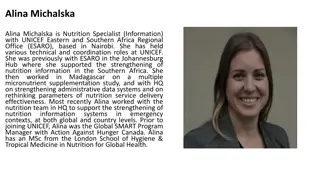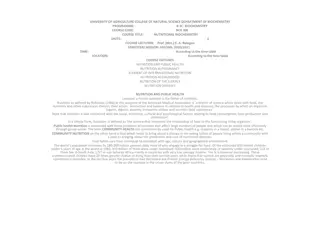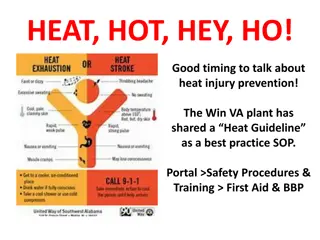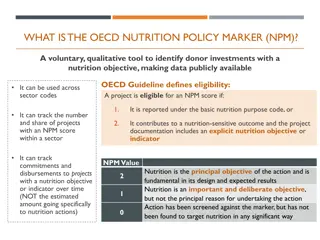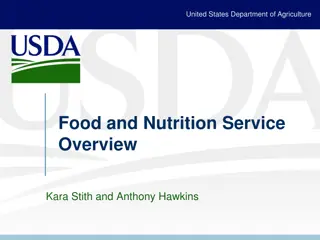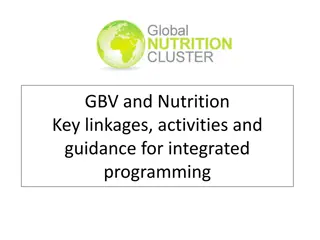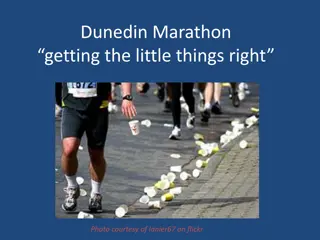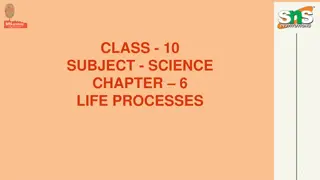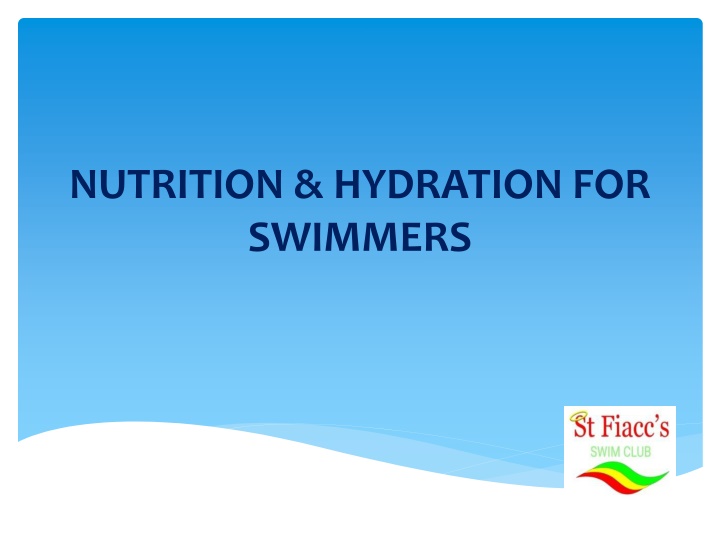
Swimmers Nutrition and Hydration Guide
Learn about the importance of nutrition and hydration for swimmers. Discover when and how much to drink before, during, and after training, along with nutrition tips for peak performance. Avoid dehydration by understanding the signs and staying properly hydrated.
Download Presentation

Please find below an Image/Link to download the presentation.
The content on the website is provided AS IS for your information and personal use only. It may not be sold, licensed, or shared on other websites without obtaining consent from the author. If you encounter any issues during the download, it is possible that the publisher has removed the file from their server.
You are allowed to download the files provided on this website for personal or commercial use, subject to the condition that they are used lawfully. All files are the property of their respective owners.
The content on the website is provided AS IS for your information and personal use only. It may not be sold, licensed, or shared on other websites without obtaining consent from the author.
E N D
Presentation Transcript
NUTRITION & HYDRATION FOR SWIMMERS
HYDRATION Q1 How much do you drink before training? Q2 During training? Q3 After training? Q4 How do you know if you are de-hydrated?
Signs of Dehydration Thirst Headaches Weakness Fatigue Dizziness SWIMMERS SWEAT TOO!!!!!!
How much water to drink? It is recommended that swimmers drink at least 16 fluid ounces of water two hours prior to working out (half a litre) and to consistently rehydrate during the workout to avoid any fatigue that could come from dehydration. Swimmers are also encouraged to hydrate following workouts to replenish any lost fluids and to promote recovery of muscles. Energy and sports drinks are not a good idea, they contain too much sugar and are not as effective as water. 75:25 ratio water to dilutable cordial would be better.
Why is it important for swimmers to remain hydrated? Water is required by the body to function while exercising. Water is essential in the transportation of red blood cells throughout the body, as well as the formation of protein and glycogen. All these functions are needed for the growth and recovery of muscles. Hydration also helps regulate the body s temperature and helps lubricate joints, both of which are vital to success while swimming. With a lack of hydration, swimmers can experience early onset fatigue during workouts, poorer response times, an increase in the risk of injuries, and sharp rise in the risk of cramping both inside and outside the pool. Dehydration of any degree can negatively affect a swimmer s performance in the water.
NUTRITION Q1 What do you eat before your early morning training sessions? Q2 After training? Q3 Day Before a Gala? Q4 At the Gala? Q5 After the Gala?
The Big Deal About a Swimmers Nutrition Swimming requires massive amounts of energy, whether it s an elite-level practice or an age group practice. 2 Misconceptions Swimmers Sometimes Have * I swim hard every day so I can eat whatever I want. I m working it off when I swim. While it may be true that you are burning a lot of calories, you aren t refueling with the necessary nutrients that will keep you healthy and swimming fast. Not to mention that eating loads of sugar and other processed foods will hinder your swimming and make you feel sluggish and slow. * I worked super hard in practice, so I don t want to ruin it by eating too much. I won t eat or will eat much less than what I probably should. You can t expect your body to be able to put maximum effort into a practice or a race if it doesn t have enough fuel to do so. It doesn t matter how much or how hard you swim or train, you will not reach your potential without proper nutrition.
How much to Eat? According to natural health and fitness expert Brue Baker, swimmers who are training intensely for more than two hours daily should eat four to seven light meals a day. Eating large meals or too much in one sitting will leave the swimmer feeling lethargic - consist of foods that are easy to digest. CARBOHYDRATES = 50% Protein, healthy fats (olive oil, oily fish, nuts, avocados, and seeds), vegetables, fruit, whole grains, vitamins, and minerals = 50%
WHAT DO THE DIFFERENT FOOD GROUPS DO? Carbohydrates: FUEL Stored as glycogen in the muscles and liver and is the fuel that our body uses throughout our day especially during a workout. After the workout, that energy source will be running low and will need to be replaced. Protein:REPAIR Protein repairs and rebuilds the muscles after the stresses of training in addition to warding off soreness. Also supports and boosts the immune system. NB the body can only absorb 20g per sitting. Fat: REPAIR & RECOVERY Healthy fats help to reduce inflammation after training and also help the delivery of oxygen to muscles which is needed for recovery and endurance in training. Vitamins & Minerals: Vitamin D (most of us need 10mg supplement per day), Calcium, Iron, Anti-Oxidants found in Fruit & Veg which boosts immunity and helps muscle recovery.
How to Prevent Cramps Swimmers mainly suffer from foot and calf cramps. There are 3 main causes: Fatigue or Lack of Fitness Dehydration Lack of proper warm-up and stretching on deck. MAKE SURE YOU GET ENOUGH SLEEP!!





